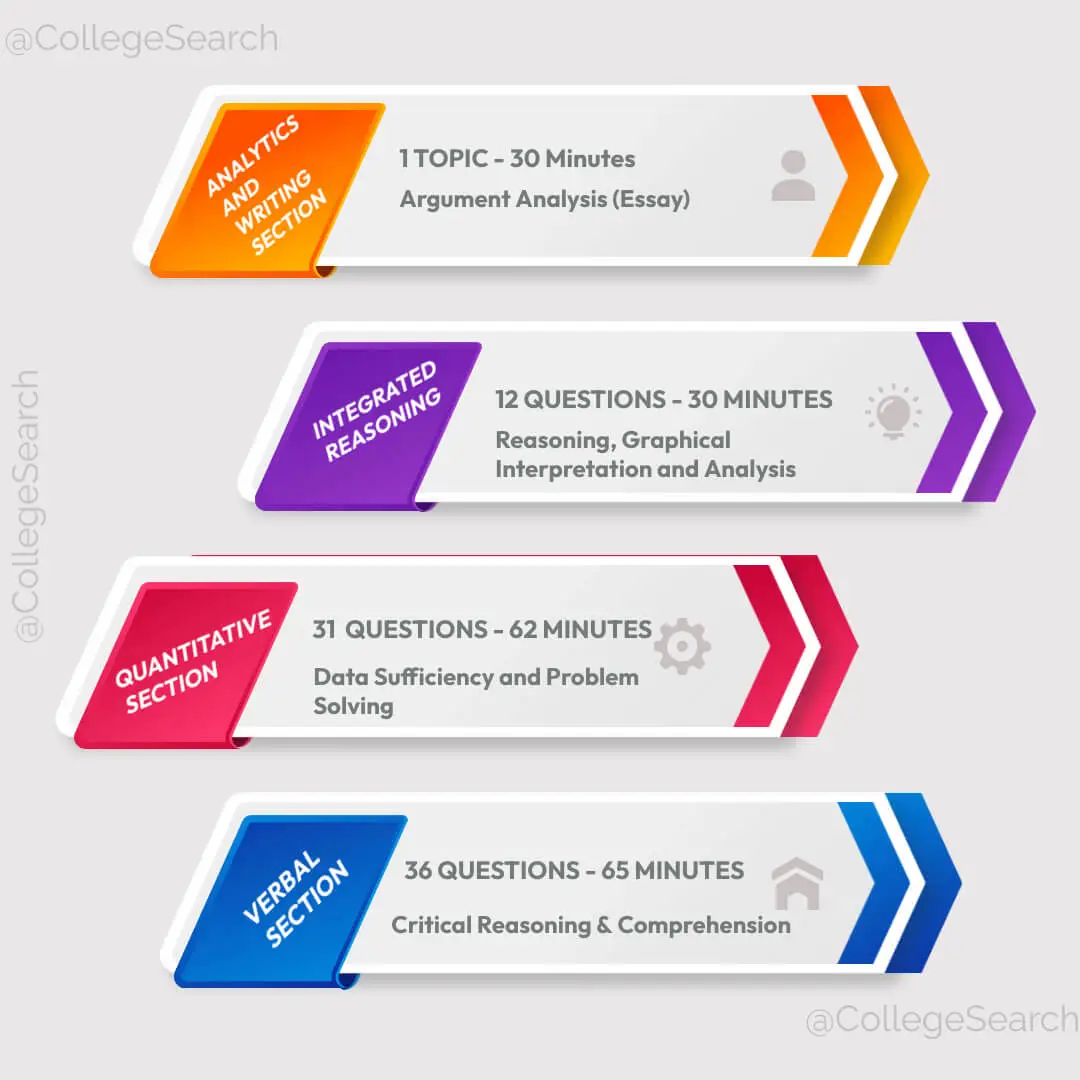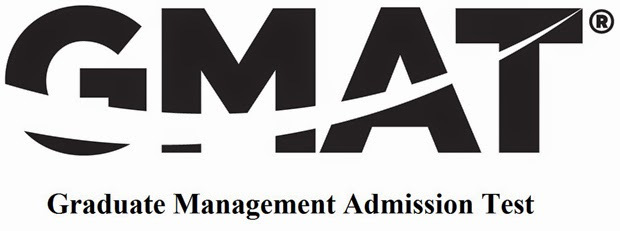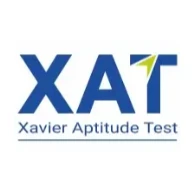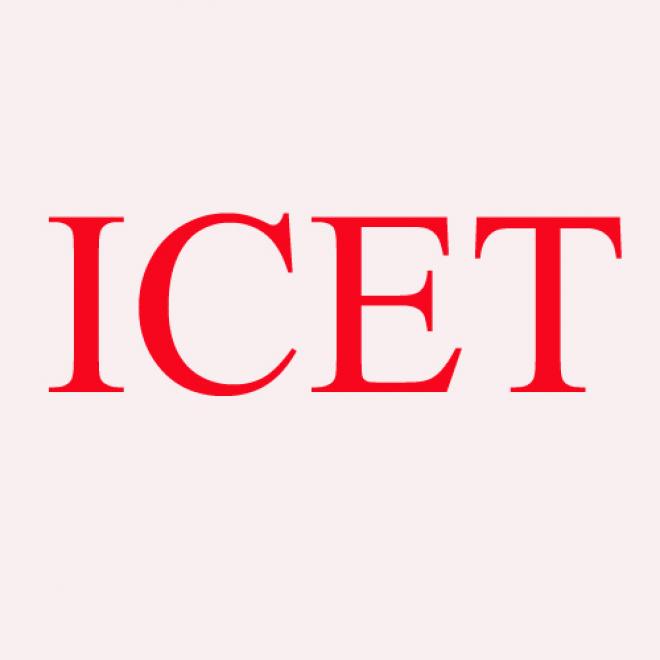GMAT 2023 Exam - Dates, Application Form, Eligibility, Syllabus, Pattern
Graduate Management Admission Test popularly known as GMAT is a yearly exam being conducted by the Graduate Management Admissions Council (GMAC). Any candidate who wishes to pursue a degree in more than 7,100 management courses like International MBA or Master's degree in Management (MiM) from the pioneer Business Schools located globally like Europe, USA, Canada, Australia, Singapore and other countries known as leaders for the best education. GMAT can prove to be the strongest scaffold for supporting dreams of such students.
GMAT is conducted in 114 countries around the world at over 600 centers.
It's not just the International Business Schools, with a valid GMAT score candidates will also be eligible to apply for one year programme which is equivalent to MBA and offered in top B-Schools of India like ISB, IIM Ahmedabad, IIM Bangalore, IIM Calcutta, XLRI and others. In GMAT candidates are evaluated on basis of analytical, writing, verbal, quantitative, and reading skills in the English language.
- Getting GMAT score instantly,
- Selecting the order of the section,
- 8 minutes break for two times,
- Inclusion of AWA
GMAT 2023 Highlights
Also Read: Top MBA Colleges of India
GMAT EXAM Dates
As GMAT is being conducted throughout the year and candidate can choose GMAT Exam Date based on the preference, it is not possible to pinpoint any particular date for its processes like GMAT Registration, Release of GMAT Admit Card and others.
GMAT Exam Date and Timing:
GMAC the conducting authority of GMAT offers flexible date and timing to take up the examination and candidates can take multiple exams up to 5 times a year in a gap of 16 days. To be precise about timing there are multiple session and candidate as per convenience can choose a timing.
GMAT Registration: How to Apply?
Here are the stages to assist you understand the registration procedure if you're wondering how to apply for the GMAT:
GMAT Application Fee
In comparison to Application Fee of other management entrance examinations, Fee for GMAT Registration is slightly on the higher side. For one attempt candidate needs to pay a registration fee of $250 which when converting as per current currency value stands to Rs. 17, 500. The registration fee of CAT, on the other hand, is Rs. 1, 900. There will be separate charges of $50 for rescheduling the exam and for GMAT Cancellation $80 extra will be charged.
GMAT Cancellation Fee
Any candidate who completed the registration process, if cancel the exam before 7 days of scheduled test date then only $80 will be refunded to the candidate. There is no refund of the application fee if the exam is canceled within 7 days of Exam Date. There is no option to cancel the scheduled examination in 24 hours of scheduled examination.
GMAT Rescheduling Fee:
On rescheduling the examination before 7 days of the examination there will be a rescheduled fee of $60 above the Registration Fee. For rescheduling, the examination within 7 days of exam scheduled candidate needs to pay $250 again as registration fee to take the examination. There is no option to reschedule the examination within 24 hours of examination as scheduled earlier.
Payment mode of GMAT Application Fee:
Aspirants need to pay the registration fee to complete the GMAT Registration Process and the same can be done in 2 modes, as mentioned below:
-
Online Payment Mode: Candidate can pay the Registration Fee through online mode by using methods like Credit Cards, Debit Cards, MasterCard, Visa Card, JCB, and American Express Card.
- Offline Payment Mode: GMAT Application fee can be paid by Cashier's cheque, Money Orders and Personal cheque.
GMAT Exam Eligibility
Graduate Management Admissions Council (GMAC) the conducting authority of GMAT has not underlined any strict eligibility criteria to appear for GMAT. Candidates do not require to have a specific field of expertise to claim a seat after GMAT, however, there can be eligibility criteria of particular colleges and courses which needs to be fulfilled at the time of admission. Candidates are advised to go through the details of colleges before applying in order to avoid any confusion at the time of seat allotment. In general, GMAT is conducted for admission in the postgraduate degree programme of Management courses so it is mandatory for the students to have a graduation degree to apply for the examination. GMAT Selection procedure also varies from college to college and course to course and it is recommended to have complete information before applying.
General Eligibility Criteria to Apply for GMAT:
| Academic Qualification | Graduation degree or equivalent from a recognized university is a must to apply for the mentioned exam. Required percentage, subjects, and work experience vary within the participating institutions. |
| Nationality | The exam is conducted in over 114 countries and no such restrictions as a nationality are applicable for GMAT. |
| Age Limit | Minimum age to apply for GMAT is 18 years and no upper age limit is set yet. Candidates below 18 years are also eligible to apply in conditions if they provide written approval from parents or legal parents. |
| Number of Attempts | Candidates can apply maximum up to 5 times in a year for GMAT. |
GMAT Admit Card
Candidates can claim the GMAT Admit Card after the successful GMAT Registration. Like every other examination, Admit card is a mandatory document to be carried to examination center and in absence of the same candidate will not be allowed to take the examination. Forget about taking the examination, it will not be possible to know the details of GMAT Test center if Admit card is not downloaded.
GMAT is conducted throughout the year and having a specific date of Admit Card release is not possible. Admit card will be given as per the registration and exam schedule date of the candidate.
Steps to Download GMAT 2022 Admit Card:
- Step 1: Candidate needs to register them first by completing the official GMAT profile by filling required information like name, date of birth and citizenship.
- Step 2: After successful registration, an auto-generated unique user ID will be created.
- Step 3: After 2, 3 days of registration candidates have to log onto the site again with the registered user ID and earlier set password followed by selecting the date of the exam and confirm the exam center.
- Step 4: In the next step candidate have to pay the GMAT Application Fee by either online or offline mode.
- Step 5: After the successful payment of the Fee, registration will be completed.
- Step 6: Completion of the registration process will be confirmed with GMAT Confirmation Letter which serves as Admit card for GMAT.
GMAT Exam Pattern
GMAT exam pattern is also quite unique as it is computer adaptive which is not just computer based like others. With every correct answer the examination difficulty level grows higher and higher, the next question always depends on the response to the previous question asked. For example, if a candidate gives the wrong answer the next question will be an easier one and vice-versa. The total score of the candidate will depend on the difficulty level of the question reached.
GMAT Exam Sections:
- Analytical Writing Assessment
- Integrated Reasoning Section
- Quantitative Section
- Verbal Section
|
Sections |
Number of Questions |
Duration |
|
Analytical Writing |
Analysis of Argument |
30 minutes |
|
Integrated Reasoning Section |
12 questions |
30 minutes |
|
Optional Break |
10 minutes |
|
|
Quantitative Section |
37 questions |
75 minutes |
|
Optional Break |
10 minutes |
|
|
Verbal Section |
41 MCQs |
75 minutes |

Here is a list of documents for the GMAT test:
Admit Card: As GMAC don't provide a separate GMAT Admit Card for the examination instead the confirmation letter of GMAT is used as hall ticket of GMAT and a must to be carried for the examination. It is important to note that the absence of a recent color photograph on the confirmation letter will be considered invalid.
GMAT approved ID Proof: The conducting body of GMAT i.e. GMAC is very strict about the rules and regulation to be followed during examination and carrying a valid original ID proof is one of them. It is advisable for the candidate to carry at least 2 ID proof to be extra careful. Identity proof must have the following information:
- Name as mentioned in the GMAT Hall Ticket and should be written in Roman even for the candidates using a different alphabet.
- Date of birth should be the same as mentioned at the time of Registration.
- Recent Color Photograph
- Candidates Signature as done on the confirmation letter
The four documents considered valid by GMAC are the international passport, national/state/province identity card issued by the government, government-issued driver's license, and military ID card.
List of Documents for GMAT Counselling:
- List of five MBA programmes candidate is interested in
- Appointment confirmation letter or the copy of the email
- Academic certificates
- Work experience certificate
- Medical Certificate (If needed)
List of invalid documents for GMAT:
The below-mentioned documents will be considered invalid GMAT test center:
- Expired passports/driver's licenses
- Employee or student IDs
- Credit cards
- Passport cards
- Social security cards
- Draft classification cards
- Letters from your university or college
- IDs with physical descriptions in place of photos
- Photocopies of ID Proof
GMAT Preparation Tips
Recommended Books for GMAT
- Test-taking tactics to succeed on the exam
- Comprehensive preparation includes approximately 1,150 practice problems from past test papers
- Answers with detailed explanations
- Organizing the questions according to their complexity
Some more books which will help you to score good in GMAT Exam are given below:
GMAT Result
In contrast to other tests, the GMAT Score Report is available to you right away after completing the exam. The GMAT score will not be disclosed after the test. The GMAT score might either be accepted or rejected by the candidate. If the applicant accepts the result, GMAC will transmit the score report right away to the school; if the applicant rejects the result report, no one will be able to see the applicant's GMAT score. Candidates can get their unofficial GMAT score report after the exam is over. Candidates can obtain a GMAT score report and AWA Score within 20 days after taking the GMAT. You can see, print, or download your official scorecard.
Important Information about online score sending
The updated procedure for transmitting candidates' online GMAT results is now in effect. Five free score reports are among the results that the GMAT will publish online. The five free score reports must be used within 48 hours after mba.com releases the official online test score. At a cost of $35 apiece, additional score reports are available. Over 7,000 programs worldwide recognize and trust the GMAT exam, which is offered both online and in test centers across the world.
How GMAT Exam is Scored?
Here is a brief explanation of how your GMAT score is determined:
GMAT Score Validity
- Candidates' GMAT scores are valid for up to five years.
- GMAT scores are useful for both pursuing an MBA degree and finding employment, since many recruiting firms utilize them to match candidates with positions.
- A candidate may retake the GMAT exam if they are unsatisfied with their results.
- But a candidate can only take the GMAT five times in a calendar year, or 12 months.
Program Recommendation Based on GMAT Score
My Recommendations is a special service provided to GMAT exam takers. Through this service, the test-taker receives a thorough list of the top 10 business schools based on their profile, GMAT results, and interests. Candidates can compare their GMAT result to other scores at the same suggested business schools by emailing the score report to them. Candidates are given a competitive GMAT rating based on the following points:
1. Good
2. Above Average
3. Average
4. Low
Candidates are able to choose any program at the suggested business school with the assistance of this competitive ranking.
GMAT Exam Centres
Colleges Accepting GMAT Score:
|
|
GMAT Cut Off
The majority of B schools throughout the world have established various GMAT cutoff scores. A GMAT score is also needed for MIM programs at European universities, in addition to MBA programs in the United States. The following GMAT requirements apply to the world's best business schools:
What makes GMAT different from other Exams?
Unlike other MBA Entrance Exams conducted only once, GMAT, on the other hand, can be taken as per the convenience of the candidate. GMAT Registrations are available throughout the year and based on GMAT Preparation candidate can choose the preferred date. In fact, if a candidate is not satisfied with his or her performance in the examination they get the privilege to sit for the examination on the next preferred date. Application Fee of GMAT is however higher than all other Management exams. For one attempt at GMAT candidate needs to pay $250 which is approximately Rs 17,500 in Indian currency and it is evidently high from application fee of CAT (Rs 1,900) or XAT (Rs 1,700).
Related Articles:
Is the GMAT Exam Difficult?
The GMAT is taken by more than 2 lakh applicants annually. The average score at premier colleges is 720 or higher, while just 6% of applicants receive a score of 700 or above. Candidates will constantly be under strain due to the GMAT's scheduling requirements and machine adaptability. GMAT is harder than it is difficult. For the GMAT to be mastered, candidates must develop the notion.
Why Apply for GMAT?
Taking the GMAT exam is required for admission to almost all MBA programs. Success on this standardized test carries advantages both during and after a business school education. There are many reasons to take the GMAT, but the top three are as follows:
- Admit in a Top Business School
- High Chance of Scholarship
- Better Post-MBA Job and Salary

Why MBA from Abroad?
People invest in obtaining an MBA from one of the world's top business schools. One has to be aware of the return on investment upon program completion before applying to a certain business school. Financial Times determines ROI and value for money rankings for the top 100 business schools worldwide each year. ROI is based on a number of factors, including fees, course length, income received by alumni, and other accumulative expenditures in addition to the amount spent and salary obtained after graduation.
How Will a candidate finance MBA Abroad?
- Many financial service companies provide loans to Indian students who want to study an MBA overseas without any type of collateral. These fintech businesses use algorithms to forecast whether a loan will be repaid.
- Education loans with collateral are offered by banks. To authorize a loan from the bank instead of holding assets like real estate, fixed deposits, government bonds, provident funds, and more, either parents or any other relative will function as a "guarantee."
- There are also a very small number of need- and merit-based scholarships available. Your GMAT results and academic record will determine which scholarships you are eligible for.
- According to the obtained score, individuals can also apply for GMAT scholarships.
Courses to apply with GMAT:
Aspirants of India applying for GMAT and qualifying the same with a valid score are eligible to apply for the below-mentioned management programmes:
- International MBA
- International Masters in Management programs
- One Year MBA in India at colleges like ISB, IIMs, XLRI, SPJIMR, Great Lakes
- Two Year MBA in India's leading 100+ B-schools/Universities
GMAT Exam Pattern
GMAT is conducted throughout the year for admission in top MBA colleges in India and abroad. There are more than 600 GMAT Test Centres which make sure that maximum students get an opportunity to take one of the popular entrance exams globally. The exam is conducted in “computer adaptive test' format which makes sure to evaluate various parameters of aspirant's expertise areas. The questions are divided into four sections and have the stage of difficulty level. Candidates are allotted 3 hours (180 minutes) to attend all the four sections. Candidates will be scored out of 800 for quantitative and verbal sections, for remaining 2 sections candidates will be scored independently based on the types of questions answered.
GMAT Exam Sections:
- Analytical Writing Assessment
- Integrated Reasoning Section
- Quantitative Section
- Verbal Section
Section 1: Analytical Writing Assessment
The aim of this section is to test the ability of a candidate to ‘analyze an argument' and candidate will have to answer the questions based on the long paragraph.
Candidates will be scored on a 6 point scale by allotting 2 independent ratings to the paragraph and taking out the average. Out of the two rating system one is done by an automated essay scoring engine and if the difference between both rating systems is more than one point, an expert reader rating will be given and then the final score will be allotted.
GMAT Exam Criteria
GMAT Selection Process starts as soon as the GMAT Examination is over. The entire selection process of GMAT can be divided into 3 steps, however, it














